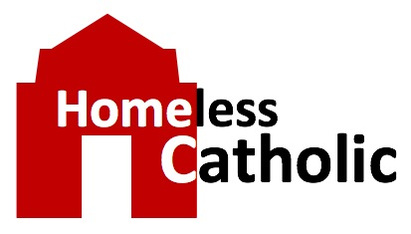Jubilee sets an example
From a Theological point of view, the jubilee of Leviticus 25 affirms that the Lord is not only the God who owns all Israel’s land; but, he is also sovereign over all time and nature. His act of redeeming his people from Egypt committed Him to provide for them on every level because they were His own children. He was also setting an example for them (and us) to follow.
Image by Pexels
Why Jubilee and Which Herod Got Boxed In?
By Tim Trainor
https://bible.usccb.org/bible/readings/080523.cfm
Leviticus 25:1, 8-17
Matthew 14:1-12
This Saturday, which our readings are from, is also the optional memorial to the Dedication of the Basilica of Saint Mary Major, located in Rome.
The 5th of August marks the date of the dedication of Rome’s first Marian basilica by Pope Sixtus III around the year 435. It is said that Mary signaled her choice of the church’s site with an August snowfall there. This was the sign she gave to John, a devout and wealthy patrician when she asked that a church be built on that spot. After the basilica’s construction, a miraculous shower of white rose petals fell upon the gathered faithful. The basilica is still known as Maria ad Nives, or, in English: “Mary of the Snows.”
Our first reading is from Leviticus and historically it occurs after Israel has conquered Canaan, and the land was entrusted by God to Israel’s clans and families. This land we are told was never to be sold by them for it belonged to the Lord, not the people (Lev. 25:23-24).
Leviticus 25 both ordains a sabbath year, one in every seven, and a jubilee year, one in every fifty, to sanctify Israel’s internal economy. In the sabbath year, each field was to lie fallow, which appears to be a sound agricultural practice. The year of jubilee and what it calls for was much more radical! Every fiftieth year, all leased or mortgaged lands were to be returned to their original owners, and all slaves and bonded laborers on it were to be freed.
The purpose of this “year of jubilee” was to prevent families from becoming permanently landless through the sale, mortgage, or permanent lease of their assigned lands. In essence, any sale of land was really a term lease that could last no longer than until the next jubilee year arrived. This provided a means for the destitute to raise money (by leasing the land) without depriving the family’s future generations of the means of production on that land.
The underlying intent is somewhat the same as seen in the 'law of gleaning', set up earlier in Lev.19:9-10. It gave the poor free access to the edges of fields after harvest, which the owners were not to gather from, and any fruit on the ground. This ensured that they would not starve.
The point of all three rules was that: God owned the land and that Israelites (God's chosen people) were to be generous and never to become slaves to other Israelites! It was conceivable, as mentioned above, that impoverished Israelites might have to temporarily sell themselves as slaves to wealthy fellow countrymen or resident aliens (Lev. 25:47-55). Even if this happened, the sale must not be permanent. People who sold themselves were to retain the right to buy themselves out of slavery if they prospered. If not, a near relative could intervene as a “redeemer” who would pay the foreigner according to the number of years left until the jubilee when all the impoverished Israelites were to be released. During their servitude, they were also not to be treated harshly but be regarded as hired workers.
From a Theological point of view, the jubilee affirms that the Lord is not only the God who owns all Israel’s land; but, he is also sovereign over all time and nature. His act of redeeming his people from Egypt committed Him to provide for them on every level because they were His own children. He was also setting an example for them (and us) to follow.
Therefore, Israel’s observance of the Sabbath day and Sabbath year (every 7th year letting the land lay fallow), plus, the year of jubilee was a sign of their obedience and trust. In practical terms, the jubilee year embodies the trust all Israelites (and us) should have that God would provide for their immediate needs and for the future of their families. At the same time, it calls on the rich to trust that treating people compassionately would still yield an adequate return for them.
One last 'Theological point,' I wonder if the 'redeemer' concept introduced to us by God in our Leviticus reading could be a foreshadowing of Jesus and His mission/actions later on in the New Testament? Now, there's a subject worthy of being reflected upon all by itself!
From an economic angle, these practices reveal two principles that we can apply today. First, God desires just distribution of the earth’s resources. According to God’s plan, the land of Canaan was assigned equitably among the people. So, the jubilee was not about redistribution but was about restoration. According to one authority, “The jubilee thus stands as a critique not only of massive private accumulation of land and related wealth but also of large-scale forms of collectivism or nationalization (think socialism) that destroy any meaningful sense of personal or more importantly, family ownership, plus: no slavery!”
Let's now look at our Gospel reading. Which Herod is it that we read about today in Matthew 14? What was his relationship to Herod the Great who had all the babies killed and caused Joseph and Mary to flee to Egypt with baby Jesus?
This is Herod Antipas, named to share the throne of his father, Herod the Great, after his death. Herod Antipas, better known as Herod The Tetrarch, was the ruler over greater Galilee when Joseph and Mary determined that it was safe to return from their flight into Egypt (See Matthew 2:15 ). At that time, he and his 2 other brothers, Philip and Archelaus, ruled different areas of Herod the Great old dominion as it had divided into several regions upon his death.
The word 'Tetrarch' found in our reading, suggests four rulers ("ruler of a quarter"); however, Josephus the first-century Roman-Jewish Historian, in the context of describing this Herod's legacy, mentions three areas of Israel (then a divided client state of Rome). He refers to Archelaus, who came to have "one half of that which had been subject to Herod the Great, and for Philip and Antipas the other half, divided into 2 parts."
Therefore, our Herod is known as “Herod the Tetrarch” because he sat in Jerusalem and ruled one-fourth of the holy land as a client state for Rome. This Herod had divorced his first wife and then taken his previously mentioned brother, Philip, wife Herodias, as his 2nd wife. Herodias was actually Antipas’ niece as well, making this union all the more incestuous and messy. By the way, this also caused a war with his first wife’s father, plus, caught the eye of John The Baptist. See Mark 6: 17-20 if you want more details on this.
This is also the same 'Herod' who later on in scripture was unsuccessfully used by Pontius Pilate, the then Roman governor, to evade condemning Jesus to death by referring Him to a local ruler who didn't have death penalty authority. But, Herod sent Jesus back to Pontius Pilate with a weak not guilty finding which didn't let Pilate 'off the hook.' Thus, Jesus is ultimately taken and crucified. This was done despite Pilate repeated ploys to placate the crowd of Temple Leaders and mainly their followers present in his courtyard during Jesus' so-called “trial.” See Luke 23: 3-27 for the full story of this event.
Have you ever been “boxed in” and had to do something that you truly did not want to do like Herod twice was and Pilate, only once but in a major way, was?
I assume it was not anything nearly as serious as having someone's head cut off or missing a chance to let an innocent person escape the death penalty just to please another person or the crowd! I wonder what would have happened if Herod had either refused to kill John or fully taken on Jesus' case; or, Pilate had acted otherwise? While, most of the people present may have rioted or called them a liar or a louse for not following through with their evil actions; never-the-less, I hope that some people present at each event would have silently applauded and supported their just decisions. But then history would not be the same if Herod and Pilate had acted differently than what the Bible records.
I see Pilate, and somewhat Herod, as being Shakespearean types of tragic heroes; people unknowingly used by God to accomplish His good will. Plus, they teach each of us, His children, the valuable lesson of: Don't let your emotions and pride box you into evil choices—but bravely confess and reverse stupid choices ASAP!
Both readings, particularly the Leviticus one, are examples of our God teaching us about the 'Redeemer' concept, plus, our need, as His children, to be generous, trusting, and brave.

